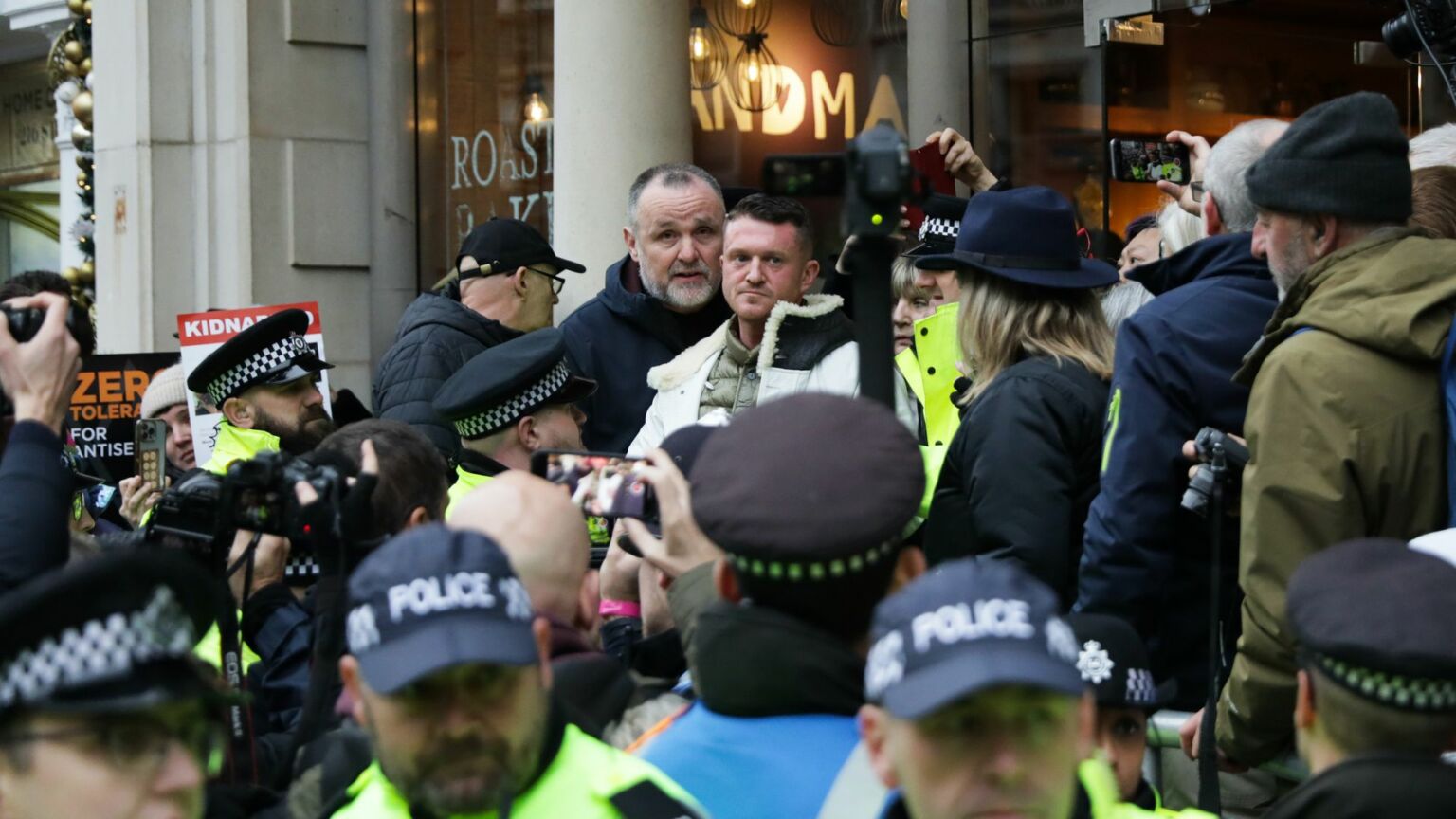The problem with Tommy Robinson’s arrest
The police have far too much power to clamp down on protest and assembly.

Sunday’s March Against Anti-Semitism in London was one the biggest shows of solidarity with Britain’s Jews the UK has ever seen. And yet, on this day of all days, anti-Islam campaigner Tommy Robinson decided to try to make everything about him.
Robinson, whose real name is Stephen Yaxley-Lennon, had been asked to stay away from the anti-Semitism march by its organisers. The police had also warned him that his presence was likely to ‘cause harassment, alarm and distress to others’. The police had imposed a Section 35 dispersal order (under the Anti-Social Behaviour, Crime and Policing Act 2014) on the area around the march, no doubt because they were keen to deal with Robinson should he turn up.
But, predictably, Robinson wasn’t having any of it. Instead, he arrived early with a cameraman, ordered a breakfast in a nearby café and waited for the inevitable arrest. And, right on cue, the Metropolitan Police turned up to give Robinson exactly what he wanted – namely, attention.
Several police officers asked Robinson to leave the area, and when he refused, they pepper-sprayed him and led him away in handcuffs. On Monday, the Met confirmed he had been charged with failing to comply with a Section 35 order to leave an area and will appear in court in the new year.
Robinson knew what he was doing on Sunday. He could have stayed away. When asked by the police to leave, he could have packed up the cameras and sidled off. Instead, he argued and struggled until he got what he almost certainly came for – his own arrest on camera.
Regardless, the police’s role in all this is deeply worrying – and anyone who cares about freedom should pay close attention to it. The grounds on which Robinson was arrested – that he might cause ‘harassment, alarm and distress’ – are vague. How can the police claim to know, preemptively, what will cause harassment, alarm and distress to others? After all, they are the same police who apparently struggle to grasp the meaning of the barely veiled genocidal chant, ‘From the river to the sea’. And yet, we’re supposed to believe that they know who and what will cause harassment, alarm and distress in this case. All this seems like a recipe for the arbitrary exercise of police power.
Then there is the broader question of the cost of such police interventions to our civil liberties. Did Robinson really need to be removed from the vicinity of the march? There were more than enough police officers to keep an eye on him. If at any point he had done something he shouldn’t have done, then he would have been arrested. But preemptively removing him under Section 35 surely violates the most basic freedoms of assembly and protest.
Make no mistake: Robinson is a narcissist. He had one overriding objective on Sunday – to make himself the main event. And through their foolish, illiberal intervention, the police gave him what he craved.
We should deal with Robinson as we would any attention-seeker. By ignoring him. Otherwise, we risk being distracted from what really matters here – namely, the struggle against anti-Semitism.
Mark Birbeck is co-founder of Our Fight, a new campaign against anti-Semitism. Follow the group on Twitter: @OurFightUk
Picture by: Getty.
To enquire about republishing spiked’s content, a right to reply or to request a correction, please contact the managing editor, Viv Regan.









Comments
Want to join the conversation?
Only spiked supporters and patrons, who donate regularly to us, can comment on our articles.